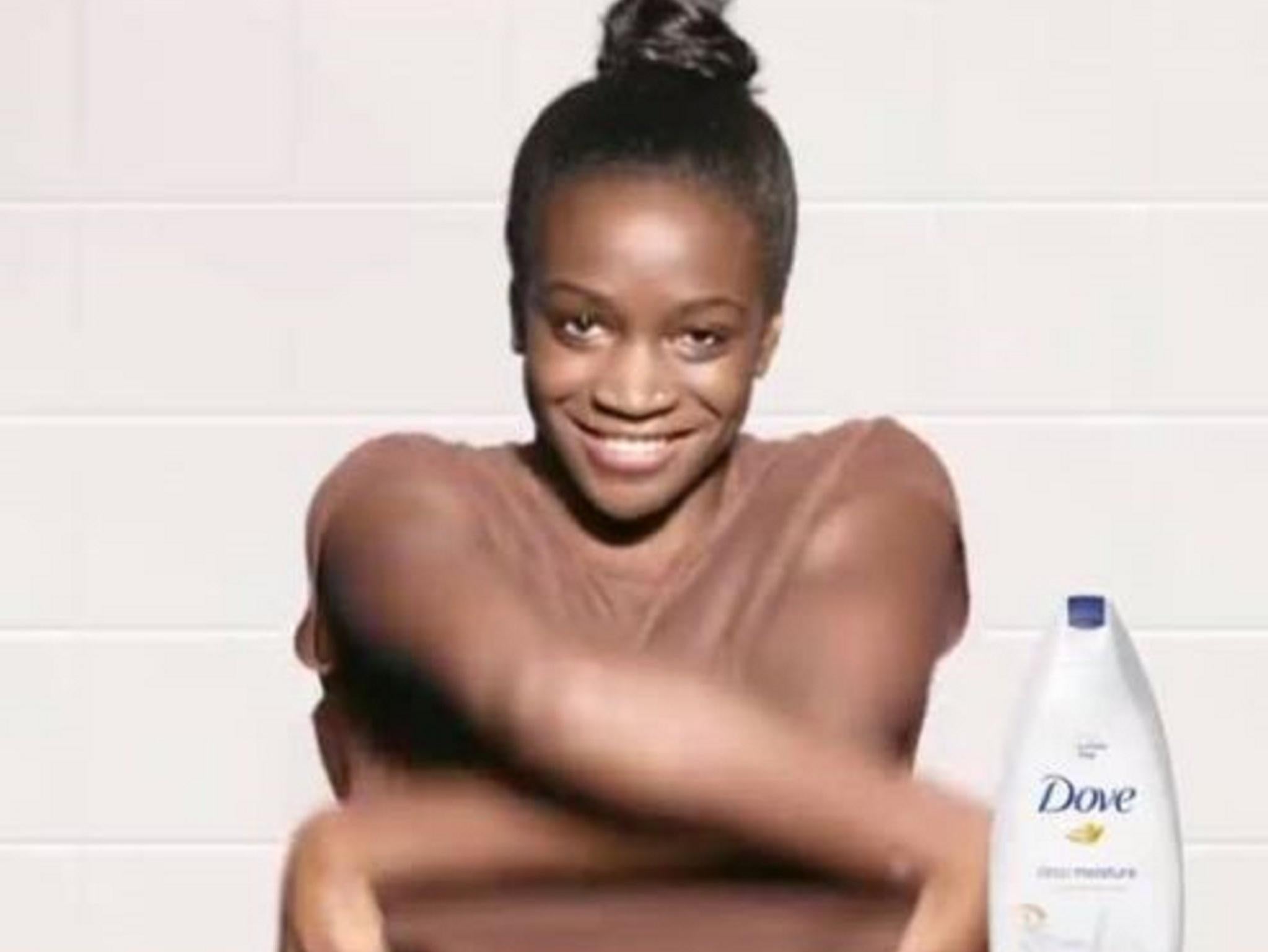Dove’s apology for its Facebook advert is insulting to people of colour – ‘sorry you’re offended’ really isn’t enough
The ad has made it more obvious than it’s ever been that we need a complete industry overhaul – and colourism needs to be taken as seriously as racism


A Facebook advert from the personal care brand Dove has recently sparked backlash after one of its images – a black woman removing a brown T-shirt to reveal a white woman in a pink T-shirt underneath, seeming to imply that Dove products had “cleaned” her black skin off – went viral.
It reminded many of the Chinese advert for washing detergent in which a black man is pushed into a washing machine only to emerge as a light-skinned East Asian man.
Dove appeared to be guilty of the same abhorrent conceit. Make-up artist and blogger Naythemua (Naomi Blake) described the advert as “tone deaf” (not only a salient point, also a great pun). She explained: “To know that colourism is a problem in the world, that includes bleaching the skin, and they would put this ad out without a thought... [It] makes no sense.”
Colourism is a concept that addresses an important nuance within racism: it is not just ethnic background that determines prejudice, but being lighter or darker skinned within one’s own race. People of black or Asian heritage who have a lighter than average skin tone – as well as features that more closely align with Caucasian standards – are often held in higher esteem.
In advertising, TV, film and elsewhere, including these individuals with lighter skin and classically Caucasian features while excluding darker-skinned people with traditionally “non-Western” features is rife. It’s dangerous because it creates the façade of diversity while quietly maligning huge numbers of people. These insidious practices disproportionately affect black people – hence why the image in Dove’s advert was so problematic.
Naythemua’s point is indisputable, and Dove has apologised – albeit with the usual evasiveness that follows a shamefully insensitive display by a big brand. The cosmetics company insisted: “We deeply regret the offence it caused.” Needless to say, this choice of wording does not suggest, “We deeply regret creating this advert in the first place”, but rather, “We deeply regret how you all responded to it.”
Dove’s defenders claimed that the still currently circulating social media was taken out of context, explaining how the reveal of a white woman under the removed T-shirt was followed by the reveal of an Asian woman in the full advert.
But this defence misses the point. The reason that the transformation of a black woman into a white woman stuck such an unpleasant chord was that it seemed to make blatant a process that the beauty industry often more subtly alludes to.
Many beauty products are hinged upon the ideal of whiteness. This can be anything from the obvious – things like skin-bleaching products, the preference for hair that hangs down and the prevalence of products to support that – to the less obvious beauty norms such as red lipstick and rouge, both of which promote the pink tones common in white skin but not in black or brown complexions.
People often pretend that this relationship goes both ways, and that the tanning industry relegates paleness and reveres a darker skin tone. But tanning still promotes an ideal of whiteness, because darker skin tones cannot achieve the light bronze hue that is associated with that sunkissed image. Besides, no person of colour has ever looked at their sizzling white friend and thought: “This is progress.”
This is not to say that issues of colourism within the beauty industry haven’t seen any progress recently. Revolutionary moments, such as the launch of Rihanna’s Fenty Beauty, a make-up brand that seeks to cater for all skin tones, have offered much-needed glimmers of optimism. Women who were being forced to lighten their skin with pale foundations because they couldn’t find one dark enough are now having their needs provided for.
But this Dove advert has functioned as a sinister trigger for all the issues that remain unsolved, and for the overarching, disturbing and depressing reality that women of colour are still being taught that they are less beautiful.
Put simply, a half-arsed apology from Dove is not enough. We need a complete overhaul and some hard and fast rules for the entire industry: no more blatantly racist adverts, and no more subtly racist standards.
Join our commenting forum
Join thought-provoking conversations, follow other Independent readers and see their replies